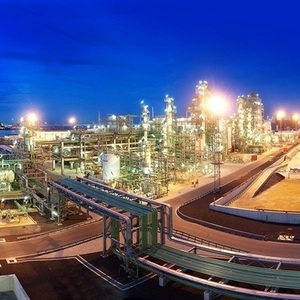Neste to boost SAF production capacity, releases Q1 results

SOURCE: Neste
April 29, 2021
BY Erin Krueger
Neste Corp. on April 29 released first quarter financial results and announced plans to enable production of up to 500,000 metric tons per year of sustainable aviation fuel (SAF) at its renewable products refinery in Rotterdam, the Netherlands.
Currently, Neste’s Rotterdam biorefinery primarily produces Neste MY Renewable Diesel. Planned modifications to the plant will enable Neste the option to produce up to 500,000 metric tons of SAF annually as part of the plant’s existing capacity. Investment in the project is estimated to be EUR 190 million ($230.25 million).
According to Neste, the project is expected to be complete during the second half of 2023. Together with the company’s ongoing Singapore refinery expansion, Neste will have the capacity to produce 1.5 million tons of SAF annually by the end of 2023. The company can currently produce 100,000 metric tons of SAF annually.
As announced earlier this year, Neste is also considering building a new renewable projects refinery in Rotterdam. A final investment decision on the project is expected to be made in late 2021 or early 2022.
Advertisement
“This SAF investment in Rotterdam is another important step for Neste in the execution of our growth strategy: to become a global leader in renewable and circular solutions,” said Peter Vanacker, president and CEO at Neste. “We have made a commitment to support our customers to reduce greenhouse gas emissions by at least up to 20 million tons by 2030. And as the aviation industry is likely to resume on a growth trajectory after its recovery from the COVID-19 pandemic, there is a growing need and urgency to act on aviation-related emissions. Here sustainable aviation fuels offer considerable potential.”
“Aviation is at a turning point towards a more sustainable future,” added Thorsten Lange, executive vice president renewable aviation at Neste. “This extension of our SAF production capacity will support the aviation industry’s efforts to reduce its greenhouse gas emissions and the climate impact in the coming years. We are pleased that we will be ready to meet the growing demand of SAF, also driven by the European Union’s climate ambitions which will shortly be translated into a proposal for binding legislation across Europe, not least because of the Netherlands’ leading role in this matter. Using SAF gives an immediate reduction of greenhouse gas emissions. It also reduces non-CO2 impacts, which are a large part of the total climate effects of aviation emissions. And it is already available today.”
Regarding first quarter results, Neste reported strong results for its renewable products segment. “Renewable Products’ sales margin was healthy, sales volumes were high, and our production facilities reached a new quarterly production record,” Vanacker said in the company’s first quarter report, noting that the company’s oil products segment continued to suffer from a weak refining market and oversupply caused by the COVID-19 pandemic.
Advertisement
The renewable products segment posted a comparable operating profit of EUR 294 million for the quarter, down from EUR 329 million for the first quarter of 2020. Renewable diesel demand was robust, Vanacker said, but the feedstock markets remained tight. “In this market situation we were very pleased to reach a healthy comparable sales margin of USD 699/ton, which was higher than in the corresponding period last year,” he added.
Sales volumes for the first quarter reached 743,000 metric tons, up slightly when compared to the first quarter of 2020. Neste’s renewables production facilities operated at an average utilization rate of 104 percent during the three-month period, achieving a new production record of 829,000 metric tons. The share of waste and residue inputs was at 90 percent.
Vanacker said that the renewables capacity expansion at Neste’s plant in Singapore is proceeding according to the revised schedule. That project will expand annual renewables production capacity by up to 1.3 million metric tons with full operations expected by the first quarter of 2023.
Overall, Neste reported a comparable operating profit of EUR 302 million for the quarter, down from EUR 408 million in the first quarter of 2020. Operating profit was EUR 458 million, up from EUR 197 million. Renewable products comparable sales margin was $699 per ton, up from $685 per ton.
Related Stories
CountryMark on July 22 celebrated the completion of more than $100 million in upgrades at its refinery in Indiana, including those related to soybean oil storage. The facility produces renewable diesel via coprocessing technology.
ATOBA Energy and Air Moana are partnering to implement scalable solutions for the supply of SAF. The collaboration aims to ensure long-term SAF availability while supporting local initiatives to develop sustainable fuel production in Tahiti.
Neste Corp. on July 24 released second quarter results, reporting record quarterly renewable product sales volumes despite weaker margins. SAF sales were up nearly 80% when compared to the first quarter of 2025.
Valero Energy Corp. on July 24 released second quarter results, reporting a profitable three-month period for its ethanol segment. The renewable diesel segment posted a loss, but the company’s new sustainable aviation fuel (SAF) unit operated well.
The IRS on July 21 published a notice announcing the 2025 calendar-year inflation adjustment factor for the Section 45Z clen fuel production credit. The resulting adjustment boosts maximum the value of the credit by approximately 6%.
Upcoming Events










